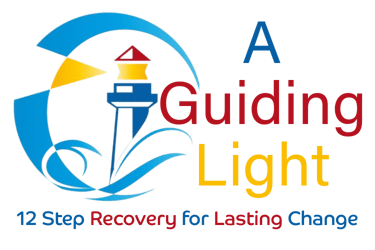Acknowledging Powerlessness
Starting the path of recovery from alcoholism or drug misuse is a brave and life-changing decision. The relationship with a higher power is a factor that is frequently disregarded but has a significant impact on this process, even though different therapy modalities and support networks are essential. In this blog, we'll discuss how strengthening your relationship with a higher power can give you strength, comfort, and a sense of direction during your recovery process.
NA
5/22/20242 min read


Acknowledging Powerlessness
In many rehabilitation programs, admitting one's helplessness over substance usage is the first step. This admission paves the way for a significant change in viewpoint and an openness to asking for assistance outside of one's capabilities. Seeking the aid of a higher power enables people to give up the appearance of control and accept the backing of something bigger, which may be a source of empowerment.
Finding Strength in Surrender
Giving in to a greater power is not a sign of weakness but of strength in humility. Letting up the urge to control everything and developing faith in a power greater than ourselves are common steps in recovery. This serves as a basis for resilience, assisting people in overcoming cravings, withdrawal symptoms, and the emotional ups and downs associated with recovery.
Establishing a Source of Guidance
During difficult times, people often turn to a higher power for guidance. This could be achieved through prayer, meditation, or reflection and can provide individuals in recovery with a source of strength and wisdom. This connection acts as a moral compass, helping them make tough decisions and promoting personal growth.
Building a Purposeful Life
Recovery is not solely about refraining from substance use but also about reconstructing a fulfilling and purposeful life. Establishing a bond with a higher power can shed light on a route toward personal transformation, providing a sense of direction beyond the immediate objective of attaining sobriety. Many individuals find comfort in contributing to the welfare of others, aligning their actions with a noble cause.
Nurturing Spirituality in Recovery
Spirituality is an essential aspect of recovery that differs from religion. It involves finding significance, direction, and connection beyond the physical world. Establishing a spiritual practice through a structured religion, nature, or self-reflection can bring a deep sense of tranquility and satisfaction, improving individuals' overall health and well-being in recovery.
Bottom Line
On the path from addiction to recovery, establishing a connection with a higher power can have a profound impact. It can offer strength during moments of weakness, guidance during times of uncertainty, and a sense of purpose beyond the self. By cultivating this connection, those in recovery may discover a powerful and enduring force that enables them to create a life of sobriety, meaning, and satisfaction.
Recovery is a difficult journey, but the rewards of achieving sobriety are worthwhile. Dale Preston has created a step-by-step guide to help individuals stay on track and overcome challenges on the path to recovery. It's an invaluable resource for anyone seeking support in their transformative process. Grab a copy of A Guiding Light Workbook today and work the steps to understand the disease, prevent relapse, and stay clean and sober.
Find Us On
Find us on Facebook, Instagram and YouTube & More
Contact Us
Subscribe to our Newsletter
Help@agl911.com
(559) 616-2719
© 2025. a guiding light 911 All rights reserved.
Books Available at
Paperback Books on Amazon and Coil Bound Books on Lulu
Info@agl911.com
Sales@agl911.com
Support@agl911.com
Disclaimer:
Al-Anon Family Group Headquarters, Inc. (AFG, Inc.) does not endorse and is not affiliated or in any way associated with A Guiding Light 911 or www.agl911.com website. The official AFG, Inc. website may be found here https://al-anon.org/. The AL-ANON name and logo are registered trademarks of AFG, Inc. All statements or opinions expressed are strictly those of the author and do not reflect those of AFG, Inc.
